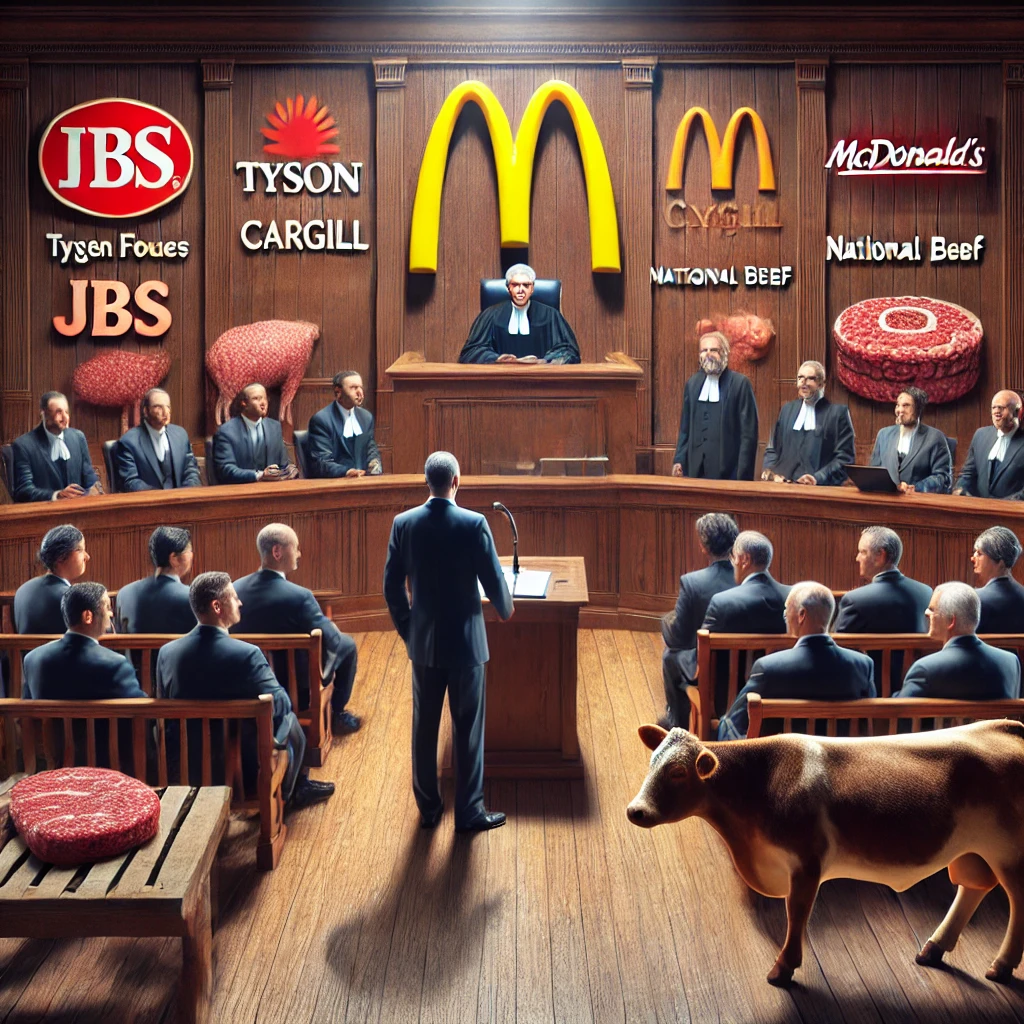
McDonald’s Legal Action
In a major move against some of the largest meat processors in the U.S., McDonald’s has filed a lawsuit accusing Tyson Foods, JBS, Cargill, and National Beef Packing of colluding to manipulate the beef supply chain and inflate prices. This lawsuit is not an isolated incident but part of a growing trend of accusations against meatpacking giants for allegedly violating antitrust laws by reducing production to artificially raise beef prices.
Allegations of Collusion
The lawsuit claims that these meatpacking companies have been conspiring since January 1, 2015, to deliberately limit beef production. This, McDonald’s argues, has allowed the companies to control market conditions, driving up prices and increasing their profits at the expense of customers. According to McDonald’s, the companies “systematically reduced production levels,” impacting not just McDonald’s but also retailers like Target and Kroger, who have raised similar concerns in recent years.
Big Four Meatpackers
The companies McDonald’s has targeted in its lawsuit—Tyson Foods, JBS, Cargill, and National Beef—are often referred to as the “Big Four” of the beef industry. Together, these companies control about 80% of all fresh and frozen beef sales in the U.S., giving them enormous influence over market pricing. This concentration of market power is central to McDonald’s case, as it alleges that this control enabled the companies to coordinate actions to reduce the supply of slaughtered cattle, thereby driving up beef prices.
Impact on Beef Prices
With such control over the beef supply, McDonald’s alleges that these companies could artificially manipulate the prices of beef to benefit themselves. According to the lawsuit, this resulted in McDonald’s, along with other businesses and consumers, being forced to pay significantly higher prices. The lawsuit calls for a jury trial and seeks unspecified monetary damages, along with an injunction to end the alleged price-fixing.
A Pattern of Legal Scrutiny
This lawsuit is part of a broader legal and regulatory examination of the meat industry. In June 2020, the Department of Justice (DOJ) issued civil subpoenas to investigate these meatpacking companies’ pricing practices, focusing on potential violations of U.S. antitrust laws. Other entities, including cattle ranchers, have also tried to bring legal action against these companies, although they have struggled to provide direct evidence of anti-competitive behavior.
The Road Ahead
McDonald’s is seeking not only compensation but also a ruling that would halt these alleged practices. If successful, this case could have far-reaching implications for the beef industry and the broader food supply chain. The court’s decision could also potentially pave the way for other businesses and even consumers to seek damages or bring similar lawsuits.
Conclusion
As McDonald’s moves forward with its case against Tyson Foods and the other meat giants, it shines a spotlight on an industry that has faced increasing scrutiny over its pricing and business practices. Whether McDonald’s can prove its allegations remains to be seen, but the case adds momentum to the growing calls for transparency and reform within the meatpacking industry.


